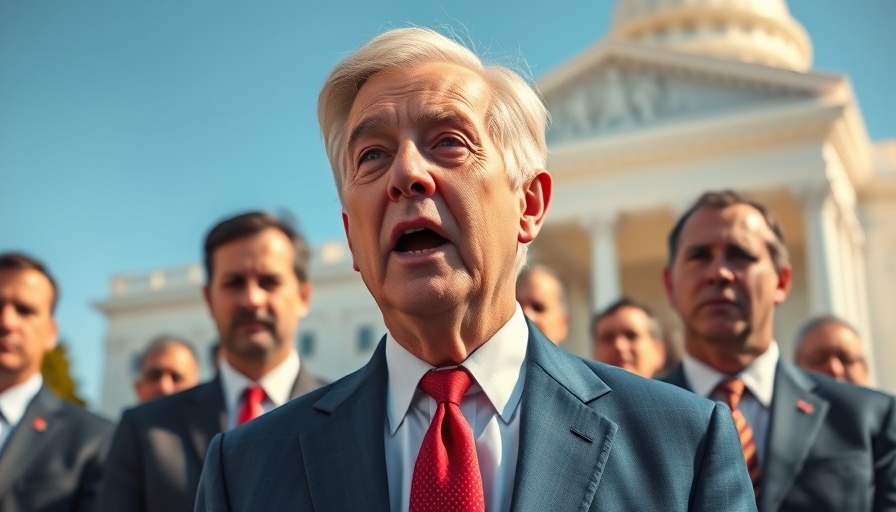
Trump's Tariff Strategy: A Temporary Backtrack
In a surprising twist of economic policy, President Donald Trump announced a 90-day reprieve on tariffs against most nations, while simultaneously escalating tax rates on Chinese imports to an unprecedented 125%. This move, prompted by fears of a global market meltdown, reflects the complex interplay of domestic policy and international economics that defines Trump's administration.
In 'Trump backs down on most tariffs for 90 days but raises Chinese imports to 125%', the discussion dives into intricate tariff strategies, prompting a deeper analysis of their implications for global trade.
The Global Market Reaction: A Catalyst for Change?
The backlash from global markets was swift following the implementation of Trump's tariffs. Investors reacted negatively, highlighting the economic vulnerability of the US and how interconnected it is with world markets. With more than 75 countries now set to negotiate, Trump's strategy appears to be a gamble designed to balance aggressive policy with the realities of economic tolerance. By demonstrating flexibility, he may seek to maintain international relations, although at what cost remains to be seen.
China at the Forefront: The 125% Tax
China, as a focal point of Trump's tariff strategy, faces the steepest impact from this policy shift. By elevating tariffs to 125%, the administration signals an unwillingness to compromise in its trade stance against Beijing. Economists warn that this harsh measure might stifle potential negotiations and lead to further economic strife, not just for China but globally. The question arises: how will China respond to this escalation, and what implications does it hold for global trade partnerships?
Domestic Implications of Tariff Changes
For professionals across various sectors—from agriculture to technology—the ramifications of these tariffs are significant. Industries reliant on imported goods may face increased costs, which could ultimately be passed on to consumers. The administration's approach raises essential questions regarding the broader impact on American manufacturing and the economy at large. As businesses adapt to these sudden changes, the stability of the job market and consumer protection comes into sharp focus.
International Trade and Negotiations: What to Expect
Trump's decision to backtrack on most tariffs while maintaining pressure on China opens the door for more diplomatic negotiations. It suggests a possible pivot in trade strategy designed to soften the blow for allies while still taking a hard line against perceived adversaries. The global community remains watchful; how effectively will Trump leverage negotiations in this new environment, and will other nations reciprocate his willingness to engage?
Potential Long-term Consequences for African Trade
For African nations, the shifts in US trade policy could hold both opportunities and threats. As the Trump administration navigates its tariffs and negotiations, African countries could either benefit from a more favorable trade environment with reduced tariffs or find themselves squeezed by a more aggressive US policy towards China—a key trading partner for many African nations.
Conclusion: The Need for Informed Engagement
As the global trade landscape continues to evolve, professionals in every sector must stay informed and engaged. Understanding the implications of such tariff strategies is crucial for navigating potential challenges and opportunities within both local and international markets. As we analyze these developments, we encourage readers to remain vigilant and proactive in following developments in global trade policy.
 Add Row
Add Row  Add
Add 




Write A Comment